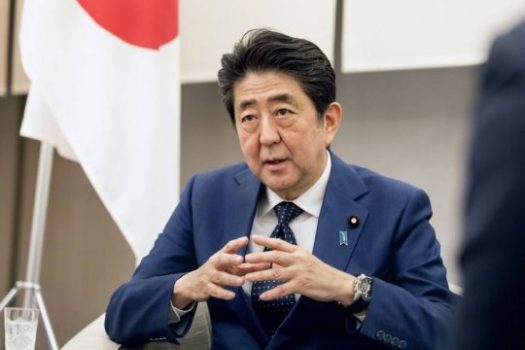
Shinzo Abe, the longest-serving Japanese prime minister in history, has resigned, citing health reasons.
“Even though there is one year to go in my tenure and there are challenges to be met, I have decided to stand down as prime minister,” said Abe at a press conference in Tokyo on Friday.
“For almost eight years I controlled my chronic disease, however, this year in June I had a regular check-up and there was a sign of the disease,” he added.
“I made a judgment that I should not continue my job as prime minister” said Abe. “I need to fight the disease and need to be treated.”
He also apologized to the people of Japan for being unable to fulfill his duties during the coronavirus pandemic.
Abe suffers from colitis, a non-curable inflammatory bowel disease, which was also a factor in his sudden resignation as prime minister in 2007, ending his first term after just over a year in office.
Having witnessed his 2,799th day in office Monday, Abe had just become the nation’s longest-serving prime minister in terms of consecutive tenure.
His health has been the subject of intense speculation since he underwent an examination at Tokyo’s Keio University Hospital on Aug. 14, and then returned for a follow up exam on Monday.
Under Abe, his right-leaning Liberal Democratic Party (LDP) has also seen major success, benefiting from the fracturing of its long-term rival Democratic Party, which split in two in 2017. He leaves the LDP in control of both houses of parliament, with a large majority in the lower House of Representatives.

Biden Administration Imposes New Sanctions On Iran Following Attack On Israel
Israel’s European Allies Urge Restraint Amid Escalating Tensions With Iran
Israel Prepares For Possible Attack From Iran As Tensions Escalate
Senegal’s President Bassirou Appoints Ousmane Sonko As New Prime Minister